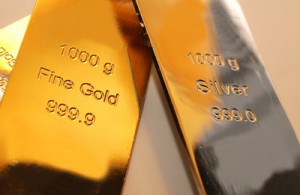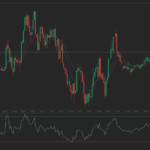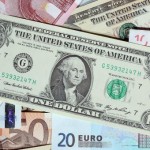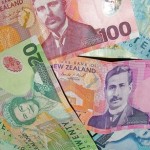 Gold and silver prices were lower during midday trade in Europe today. The ECB kept rates unchanged, while ECB President Draghi said the bank had no plans to act dramatically in the immediate future. Meanwhile, copper futures were higher ahead of Chinese trade data.
Gold and silver prices were lower during midday trade in Europe today. The ECB kept rates unchanged, while ECB President Draghi said the bank had no plans to act dramatically in the immediate future. Meanwhile, copper futures were higher ahead of Chinese trade data.
Gold futures for December delivery trade at $1 306.2 per troy ounce at 12:58 GMT on the COMEX in New York, down 0.15%. Prices ranged from $1 303.0 to $1 309.9 per troy ounce. The contract added 1.78% yesterday for a weekly net increase of about 1%.
Meanwhile, silver for September had lost 0.27% at $19.970 per troy ounce. The contract added 0.96% yesterday for a net weekly loss of about 1.2%.
Palladium for September was up 0.37% to trade at $852.00 per troy ounce, while October platinum was up 0.30% at $1 469.65.
ECB rates
The European Central Bank (ECB) kept rates unchanged, with benchmark lending interest at 0.25% and deposit rate at -0.10%. A negative deposit rate means that the ECB charges commercial banks for keeping their money in deposit, and is a policy measure aimed at spurring lending, and liven overall economic activities. The decision was largely expected and had no lasting impact on the euro.
The euro has a very strong opposite correlation with the US dollar, meaning a weakness for the euro translates into strengthening for the dollar, which pressures the dollar-denominated gold.
In the press conference following the meeting, ECB President Mario Draghi shared the banks view, that inflation is still low, but seen stable through 2014 and rising in 2015 and 2016. He added that the ECB was ready to implement QE or other non-conventional, should the mid-term inflation expectations turn downwards, as the real economy was still in focus. Mr Draghi also said that the bank was closely monitoring the geopolitical risks, including the crisis in Ukraine and developments in Iraq, Syria, Libya and Gaza, weighing their potential impact on the economy of the EU.
The ECB meeting comes amid worsening economic figures for the Eurozone. Earlier today Germany reported contracting industrial production, after a surprise drop in factory orders was logged yesterday. Italy was reported back into recession, while services sector readings for the Bloc fell below expectations. Just last week the Eurozone reported declining CPI, which was logged at 0.4%, well below ECB’s 2.0% target.
Last week the US central bank, the Federal Reserve, held its policy meeting, deciding to keep on track with reducing monthly government spending on stimulus, while maintaining the 0.25% base interest rate. The US economy is widely seen as recovering well, in contrast to the EU, driving a stronger dollar, which pressures gold.
Russian countermeasures
Russian Prime Minister Dmitry Medvedev announced Moscow would be introducing its counter-sanctions in retaliation to the Wests measures. Mr Medvedev said Russia is banning all food imports from the EU, US, Norway, Canada and Australia for a period of one year. This includes meat, fish, daily products, food and vegetables. The imports are valued at more than €10 billion annually.
“We think that for gold prices to really move higher, the complex will need to see current political tensions translate into economic dislocations that could conceivably impact the global economy,” INTL FCStone analyst Edward Meir said for Reuters. “Judging the recent Russian actions, we very well may be heading towards that direction at a much more rapid clip than was the case several weeks ago.”
Meanwhile, NATO supported earlier remarks made by Radoslaw Sikorski, Polish Foreign Minister, saying that Russia has amassed more than 20 000 combat-ready troops near the border with Ukraine, who are capable of invading. Moscow claims there will be exercises taking place there, though it is widely seen as a show of force, coming at a time when the Ukrainian military score advances against the pro-Russian separatists.
Heavy fighting was reported in Donetsk, a rebel bastion, while earlier on Wednesday two civilians were reported killed in Luhansk, the other major separatist stronghold, the BBC reported.
Copper
Copper futures for September delivery had increased by 0.24% to trade at $3.1735 per pound. The contract dropped 1.20% yesterday, reaching a five-week low of $3.1570.
Slowing to near-standstill industrial production in Germany failed to pressure the red metal lower today, as prices were already quite depressed by a strong US dollar.
Copper, like gold, is mostly dollar-denominated and a stronger dollar lifts the price of the metal for foreign currencies, lowering its overall appeal.
China will post key foreign trade data tomorrow, and copper imports have probably fallen, analysts say.
Previously, HSBC posted its reading on services expansion in China, the world’s leading consumer of industrial metals, accounting for 40% of total demand. HSBC’s services PMI was logged at 50.0, a nine-year low, standing on the verge of contraction.





